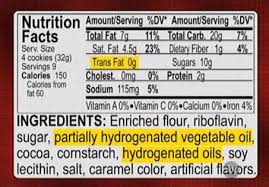
If your calcium score is zero and you go bust with your diet, how long before the score rises?
Your calcium score is zero because you’ve been having a healthful diet and exercising, and maybe there’s some good genetics and/or youth tossed into the equation.
But let’s suppose that lately you’ve been gorging on sugary foods with trans fats, and eating very little of the vegetables and fruits you used to eat a lot of.
Maybe you’ve been stressed. Stress can lead to junk food consumption as a form of emotional relief or comfort.
The body’s stress response triggers cravings for high-fat, high-sugar foods, which can temporarily boost mood.
How long do you have to keep up this bad diet before it raises that calcium score of zero?
“Usually a calcium score or stress test gives an average person about a three to five year warranty in that if it is normal, the risk will probably be low for that period of time,” says Dr. Sameer Sayeed, a cardiologist at ColumbiaDoctors of Somers, NY.
“If someone is abusing their diet, it is possible that plaque could build up in three to five years’ time to the point where it could be detected on calcium score,” adds Dr. Sayeed.
“This is about how often stress tests, but not necessarily calcium scores, are repeated to monitor for new flow-limiting plaques.”
If your calcium score is zero, indicating no significant calcified plaque in your coronary arteries, it’s important not to use this as an excuse to abandon healthy eating habits.

The closer a food is to its natural state, the healthier it is for the human body, especially the heart.
Consuming a menu high in processed foods and added sugars can still pose risks to the person with a zero calcium score, because sugars contribute to coronary artery plaque buildup over time.
While a zero calcium score is a positive sign, maintaining a plant based diet rich in whole foods and low in processed sugars is the magic bullet for long-term heart health and preventing future cardiovascular issues.
You should read ingredient lists of your favorite foods.
You’ll be surprised over the amount of “hidden” sugars. Any ingredient that ends in “ose” is a sugar.
Trans fats can appear under various names on ingredient lists. Common names include:
1. Partially Hydrogenated Oils: The primary source of industrial trans fats.
2. Hydrogenated Oils: May also contain trans fats, though less than partially hydrogenated oils.
3. Vegetable Shortening: Often contains trans fats unless specified as trans fat-free.
4. Margarin: Some margarine products contain trans fats, though many have been reformulated.
5. Fully Hydrogenated Oils: These are typically low in trans fats but can still be present in some products.
Also avoid anything with “interesterified” fat in it.
Always check labels carefully and choose products that list “no trans fats” or “0 grams of trans fats” to avoid these harmful fats.
Calcium score is very predictive of the presence of coronary heart disease.
Calcium score is calculated using a CT scanner without contrast dye.
The test takes about 15 minutes and shows only the amount of calcified or hard plaque.
It does not show the soft or unstable plaque deposits.










































